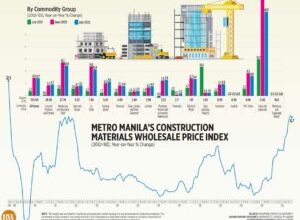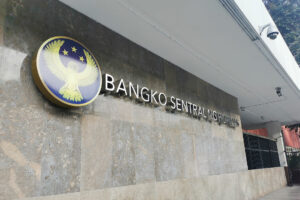Thriving in a world of in-betweens

The pandemic continues to place the world in a constant see-saw with the global numbers going up and down. It may be too early to call it, but we are breathing a little easier because the swings have been manageable (so far) and the periods when they happen are getting a little longer too. The vaccinations helped a lot and hopefully, the proof of life is already convincing enough for the remaining pockets of unbelievers to brave the needlestick and opt for the health safety net.
Humans seem to have an unending well of hope that springs even in the direst circumstances. We are more than ready to live again, prepared to cope with the risks that may still be present in the air because the alternative of a world paralyzed with fear is no longer an option. There is growing certainty that the likelihood of achieving the goal of zero transmission is no longer possible, even with stringent measures. COVID-19 will co-habit our world and we will just have to learn how to adapt to this endemic state.
The process of adaptation will be a series of actions to bring us from shaky to stable condition. We are in that place of uncertainties coming to terms with living in a different environment, deciding which old we can bring to merge with the new, and how we can fuse them to create our realities. In this transition, we will see new patterns of behaviors emerging, new processes developing, and new roles evolving.
This period will be a metamorphosis of sort, where changes that are introduced can help us build a stronger, more resilient, and better version of what used to be. History chronicled the numerous turbulences experienced by those who came before us where the human spirit rose and overcame. This experience in our generation should again display this resilience as we turn our attention to the huge task of rebuilding our world.
Business will play a significant role in navigating our own transition in this generation. We have a gut feeling that the definition of what constitutes progress and development will radically change but right now, we are living in the world of in-betweens. That means we connect the metrics we know while we collectively figure out what comes next. The big challenge for business organizations is managing these interim phases so that every aspect of the operation is ready for the changes, both in strategies and structures. The goal is to strengthen the fundamentals to survive and be ready to thrive way into a changed future. Some thoughts:
• Keep a close watch on the external developments and trends to identify opportunities, and audit the readiness of the enterprise to be a player in these arenas.
• Determine the structural changes, processes, and practices that may need to be introduced, enhanced, and updated.
• Get people to expect changes as an offshoot of new realities, to learn together and to work as a team to weather the unstable period.
• Prepare the workforce to reskill, upskill, and retool their capabilities for the changing demands of their jobs, or to take on new roles that may be created.
• Embed innovation and creativity into the organizational DNA to stay ahead.
• Lessen complexity and keep things simple — steering the organization can be done faster if we do not put this in an unnecessary maze.
There is a Latin phrase — duc in omnia — that means “to lead in all things.” It is a tall order because leaders, just like anyone else, can make many bad decisions. Learning continuously, being data-driven, and, mostly, by listening to as many inputs as possible with an open mind are some steps we can take to minimize them. When the window of awareness is broadened, when we process information and feedback and verify them, we improve the chances of finding the best solutions under various conditions.
Kafka on the Shore, one of the most renowned works of Japanese author Haruki Murakami, narrated the stories of Kafka and Nakata, the two lead characters that appeared to represent the two worlds of the conscious and the unconscious. The story implied that most people inhabit these two worlds, interchangeably, living in the borderline. The famous passage in the book is a good description of our pandemic experience:
“And once the storm is over, you won’t remember how you made it through, how you managed to survive. You won’t even be sure, whether the storm is really over. But one thing is certain. When you come out of the storm, you won’t be the same person who walked in. That’s what this storm’s all about.”
The crisis disrupted our lives, but from this disruption might arise clarity of thoughts to pave the way to do better. Ground zero is the best time to rise again. This is a chance to dismantle the barriers that hamper our shared purpose of living in a more just and humane society. We are in fertile ground to take risks, introduce innovations, support these with investments, and leave a legacy. The times call for leaders to rise to this challenge and be part of a better narrative for generation next. n
The 20th MAP International CEO Conference happens on Sept. 13, Tuesday, from 8:30 a.m. to 5 p.m., at the Shangri-La at The Fort. This is presented by the Management Association of the Philippines in partnership with BusinessWorld, Converge ICT and First Philippine Holdings. We invite you to explore possibilities and identify new opportunities using the ideas and insights that will be shared by thought leaders from diverse backgrounds. We hope the “what ifs” will pave the way for innovations that can be part of the solutions moving forward. THE WINS OF CHANGE: Thriving in a World of In-Betweens.
Alma Rita R. Jimenez is chair of the MAP CEO Conference Committee, vice-chair of the MAP Health Committee, president and CEO of Health Solutions Corp., and former undersecretary of the Department of Tourism.




